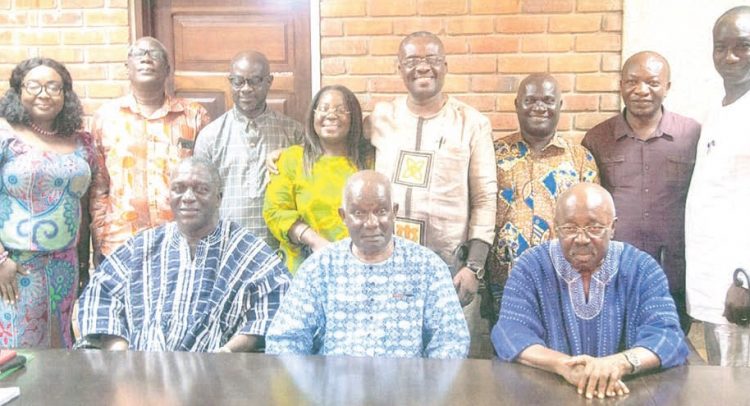Members of the board in a group photograp
A 12-member board of directors of a museum projected to house one of the world’s largest private collections of artefacts, sculpture and audio-visual representations of the African story has been inaugurated at a ceremony in Accra.
The Bisa Aberwa Museum is the brainchild of Kwaw Paintsil Ansah, one of Africa’s most respected filmmakers.
The museum, located at Nkotompo, near Effia-Nkwanta Hospital, Sekondi in the Western Region, will be officially opened on Sunday, July 28, this year, an event that is expected to be witnessed by a large crowd of people of African descent who will be in the country to participate in activities climaxing Ghana government’s ‘Year of Return’ programme.
The specimens on display are about personalities whose sacrifices have shaped African history, both within the continent and the diaspora.
They capture events within the slave dungeons in Africa, the toils of the Africans on the slave plantations and highlights of the Civil Rights Movement culminating in the election of the first African American as president of the United States of America.
The board is made up of eminent Ghanaian personalities with a cultural bent. They include Nana Kobina Nketsia V (Omanhene of Essikado and historian), Prof. Kofi Asare Opoku (retired lecturer in African Studies), Mr. Nathanya Yehuda Halevi (representing diaspora Africans), Ambassador William Azumah Awinador Kanyirege (diplomat), Prof. Kofi Agyekum (Dean of the School of Performing Arts, Legon) and Dr. Kodzo Bright Gavua (archaeologist).
Others are Mr. Nat Nunoo Amarteifio (architect), Mr. Akunu Dake (co-convenor of the Ghana Culture Forum), Madam Yvette Adounvo Atekpe and Madam Gyasiwa Aba Paintsil-Ansah, both entrepreneurs.
Mr. Frank Davies (a legal practitioner) and Mr. Enimil Ashon (journalist and Executive Director of the Centre for Communication & Culture) are also part of the board.
In his inaugural remarks, Mr. Kwaw Ansah, who also chairs the board, said the museum idea, as a heritage centre for people of African descent, was conceived 40 years ago.
He said Bisa Aberwa exists, among other objectives, to provide an opportunity for the preservation and promotion of the Africa heritage; provide an institution for research into African history and “provide a platform for the conversation among people of African descent. On display at Bisa Aberwa is how the African humanity has survived.We tell the African story.”


